Seven months after the military coup, international deliberation to get Myanmar’s or Burma’s stakeholders thrash out their difference through political dialogue is reaching nowhere, as the country descends into ever deeper conflict, making peaceful negotiation becoming almost impossible.
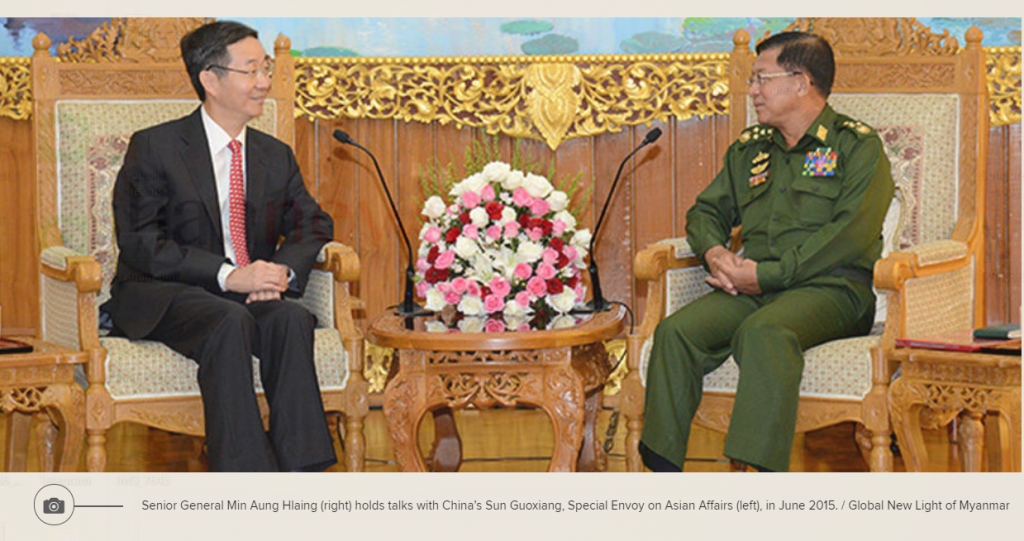
In an attempt to find a solution to the crisis, China’s top diplomat Beijing’s special envoy for Asian affairs, Sun Guoxiang visit the country from August 21 to 28, during which time he met Min Aung Hlaing as well as foreign minister Wunna Maung Lwin and Minister for the Union Government Office Yar Pyae, according to a statement released by the Chinese Embassy on August 31.
The main message delivered to the junta and international community could be summed up as endorsing the Association of Southeast Asian Nations (ASEAN) lead and find solution within the framework of the existing constitution of the country peacefully.
On August 31, China’s foreign ministry spokesperson Wang Wenbin said there was an exchange of views with the junta on political landscape concerning Myanmar.
“We will work together with the international community to play a constructive role in Myanmar’s efforts to restore social stability and resume democratic transformation at an early date,” Wang told a regular news briefing in Beijing, when asked about Sun’s trip.
“China supported Myanmar working with the ASEAN to implement a five-point consensus aimed at resolving the crisis and “opposes undue external intervention”, Wang said, according to the Reuters.
But let us first look at the development of ASEAN concerning Myanmar.
ASEAN involvement
During the last week of April, nearly three months after the military coup, ASEAN leaders met Myanmar’s junta chief Min Aung Hlaing in Jakarta and reached a five-point consensus on how to tackle the political crisis the country is facing.
“In a statement announced by ASEAN’s chair, the Sultan of Brunei, the leaders in their five-point consensus called for 1) the immediate cessation of violence in Myanmar; 2) constructive dialogue among all parties concerned to seek a peaceful solution in the interests of the people; 3) mediation to be facilitated by an envoy of ASEAN’s chair, with the assistance of the secretary-general; 4) humanitarian assistance provided by ASEAN’s AHA Centre and 5) a visit by the special envoy and delegation to Myanmar to meet all parties concerned,” according to AFP and Bangkok Post.
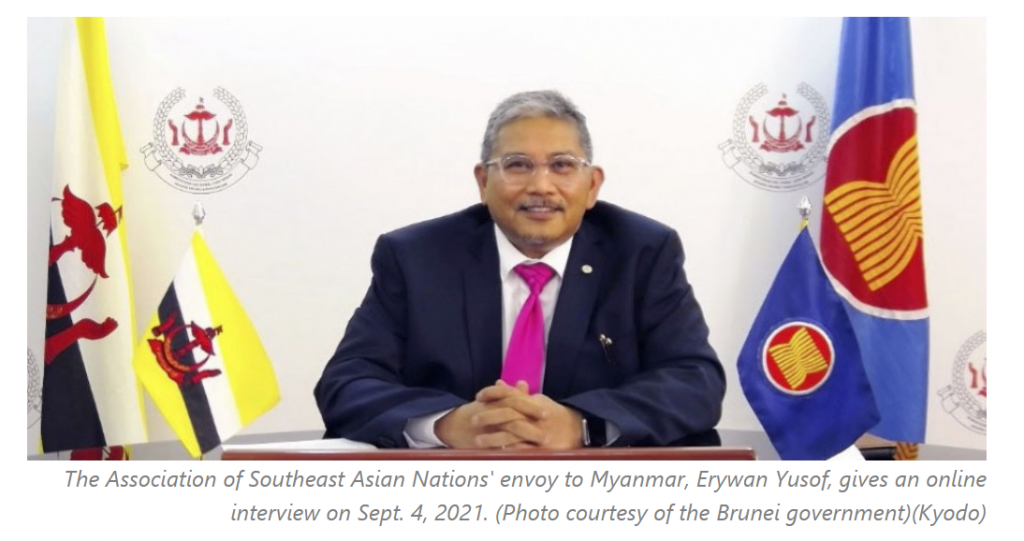
Foreign ministers from the ASEAN have appointed Brunei’s second minister for foreign affairs, Erywan Yusof, as special envoy to Myanmar, the group said on August 4, according to the Reuters report.
Erywan has been tasked with ending violence in Myanmar and opening dialogue between the military rulers and their opponents in the crisis-torn country, according to a communique released after meetings on August 2 and 4 by the bloc’s foreign ministers.
Yusof will also oversee a humanitarian aid package, although no details were announced. Instead, the communique called for the ASEAN Coordinating Centre for Humanitarian Assistance to start work on “policy guidance”.
ASEAN Special Envoy recently made a proposal for a four-month ceasefire by all sides in the country in order to enable the smooth delivery of the first batch of humanitarian assistance to the country expected as early as mid-September, according to Kyodo News.
Reportedly, he was said to have secured acceptance of the proposal from Myanmar’s military-appointed foreign minister, Wunna Maung Lwin on August 31 in a video conference.
“Aid from the 10-member Association of Southeast Asian Nations is being prepared as the member country (Myanmar) struggles with the triple crisis of political turmoil, a faltering economy and the corona virus pandemic,” the Kyodo report said.
The envoy said that he wants to have “a clear picture of what I’m allowed to do and what I’m not allowed to do…so that I can decide whether the visit would go ahead or not.”
On his chance of meeting the detained NLD leader Aung San Suu Kyi, which is also the suggestion of international community and some ASEAN members, he said it is not clear and the talk regarding the issue is ongoing with the junta.
China suggestions to ASEAN Envoy
On August 18, 2021, State Councilor and Foreign Minister Wang Yi had a telephone conversation with Special Envoy of the ASEAN to Myanmar and Bruneian Second Minister of Foreign Affairs Erywan bin Pehin Yusof, according to China’s Ministry of Foreign Affairs.
Accordingly China’s suggestions have been spelled out by Wang Yi as the following.
“First, deal with all parties in Myanmar in a rational and pragmatic manner and gradually build trust; second, give top priority to helping Myanmar in its fight against COVID-19, and ensure the accessibility and effectiveness of the anti-pandemic assistance; third, remain patient and determined, stick to the direction of promoting peace through talks, return state power to the people in an orderly manner and restart the democratic process, which not only serves the interests of Myanmar but also meets the expectations of the international community; fourth, stay vigilant against and oppose interference in Myanmar’s internal affairs by extraterritorial forces, and earnestly respect Myanmar’s sovereignty and the choice of its people.”
Three Brotherhood Alliance echos China position
Following the one-week-long Sun Guoxiang Myanmar visit, the Three Brotherhood Alliance issued a statement on September 4, urging groups to minimize, avoid, and stop military operations that affect the security of the people.
The statement also said that they wanted this in order that people suffering from COVID- 19 do not suffer more because of the war. They have called for a practical end to heavy fighting across Myanmar.
The alliance consists of the Arakan Army (AA), the Ta’ang National Liberation Army (TNLA), and the Myanmar National Democratic Alliance Army.
Ironically, armed clashes with the Three Brotherhood and KIA have been going on prior to Sun Guoxinag’s visit and is still ongoing even at this writing.
China’s new trade route through Myanmar-China
Meanwhile, China has carried out its first trial run of a new overland trade route through Myanmar.
“The first trial of the China-Myanmar corridor took place last month, which involved a cargo of around 60 containers being sent by road from Yangon, a major Indian Ocean shipping hub, to Chin Shwe Haw on the border with China. It was sent on to Lincang in Yunnan province, from where it went by rail to Chengdu, the capital of Sichuan and a major trade hub in western China. Citing industry insiders, Chinese news portal Yicai.com reported that two further trials would be held soon and regular operations could start as early as next year,” reported The Dispatch recently.
Moreover, the report writes, “Compared with traditional sea routes from eastern and southern China, the new link could save 20 to 22 days for a one-way journey, an unnamed official from Chengdu International Railway Port told state-owned Scol.com.cn. According to the official, it was the most convenient way to link China’s vast western region with the Indian Ocean, which could further facilitate trade with Southeast Asia, Europe, Africa, South Asia and the Middle East.”
Analysis
Given all these development, whether the Chinese diplomat’s one-week-long visit to Myanmar and China’s suggestion to the ASEAN Special Envoy on how he should deal with the situation will be able to help usher in a negotiated dialogue process or not is a bit too early to speculate.
Of the two major stakeholder groups, the coup-maker junta and the ethnic-democratic camp, the former is said to be affirmative with Sun Guoxiang’s proposal , including the latest proposal of ASEAN Envoy’s four-month ceasefire call. But the latter group, which is hardly a coordinated alliance with differing political agendas, haven’t said anything concrete yet at this writing, except the parallel government National Unity Government (NUG) wanted ASEAN Envoy to secure agreement from the junta to cease civilian arrests, as well as an assurance to allow him to meet Daw Aung San Suu Kyi, before calling for a ceasefire to enable the delivery of humanitarian aid, according to the recent report of The Irrawaddy.
The TNLA has responded favorably to the ASEAN envoy’s ceasefire proposal quite recently.
The Northern Alliance which is made up of the Three Brotherhood and Kachin Independence Army (KIA) are in an ongoing armed conflict with the junta in northern Shan State. The KIA is also in active conflict with the junta troops in Kachin State delivering fierce battles across Kachin State. In addition, the same is true in the Chin and Karenni states.
In heartland Myanmar, Sagaing, Magwe and Mandalay are areas where the People’s Defence Force (PDF) are active, with Sagaing PDF in collaboration with the KIA have been in heightened armed engagement against the junta’s troops. To it comes urban guerrilla warfare operations conducted by PDF and self-styled resistance groups are becoming daily routine, especially in big cities like Yangon and Mandalay. Their activities ranged from assassinations of junta’s informers, ambushing junta’s security troops, to laying explosives at junta-related facilities.
In short, the conflict mode and battle cry from the side of PDF and local resistance groups is “uprooting the military junta” at all cost to be able to establish a genuine federal union. And for the junta, it is also determined to cling on to power by all means, which it only knows to achieve the upper hand through killing, torturing, detaining and oppression of all kinds on the population. Thus, the positions were hardened, polarized and there is almost no room for negotiated settlement for the time being.
But the recent ASEAN Envoy’s ceasefire proposal may be a faint light at the end of the tunnel, provided all armed adversaries are committed to it to lessen the plight of the people from sure to unfold famine, due to the broken production-chain because of the coup and oppression, and to combat coronavirus pandemic. However, monitoring ceasefire enforcement by ASEAN may be needed if the truce is to hold, as numerous unilateral ceasefire doled out by the junta and as well the ethnic armed organizations (EAOs) have never worked or able to be implemented.
If somehow, the ASEAN envoy proposed truce will be successfully applied to realize the humanitarian aids, the forming of a more comprehensive, neutral, internationalized mediation team with enforcement power, should be a further step to take. We all know that the more than ten years of nationwide ceasefire agreement (NCA) self-help mediation process didn’t bring us any near to reconciliation or political settlement.
Reportedly on 17 August, the United Nations Security Council had a close door meeting, where the United Nations Special Envoy Christine Schraner Burgener made a report which included the NCA-Signatory-EAOs’ proposal a few months ago to include NCA signing witness countries, together with the ASEAN Envoy and the UN Special Envoy.
Generally, this should satisfy all stakeholders to form a more comprehensive, neutral, internationalized mediation team.
Last but not least, of the two-fold consensus achieved during the close door UNSC and UN Special Envoy, which were “non-interference” and “dialogue”. The former issue needs to be questioned, while the latter is in order.
Regarding this a knowledgeable country expert who has been involved in Myanmar peace process from the start said, “ My feeling is that it (UNSC and UN Special Envoy close door meeting) was a strange agreement because it was, in practice, handing over Burma’s fate into the hands of China. Forcing India, Thailand and ASEAN to deal with China on its terms, more or less. But this is not the answer. The answer to me is not non-interference, but joint-interference, which is the free world and China working out a joint solution. That is the only way.”
Still with China’s vested interest in the country, or shall we say with conflict of interest clearly present, one wouldn’t know if it will make a sincere and fair mediator behind the scene to help resolve the multitude of woes surrounding Burma.





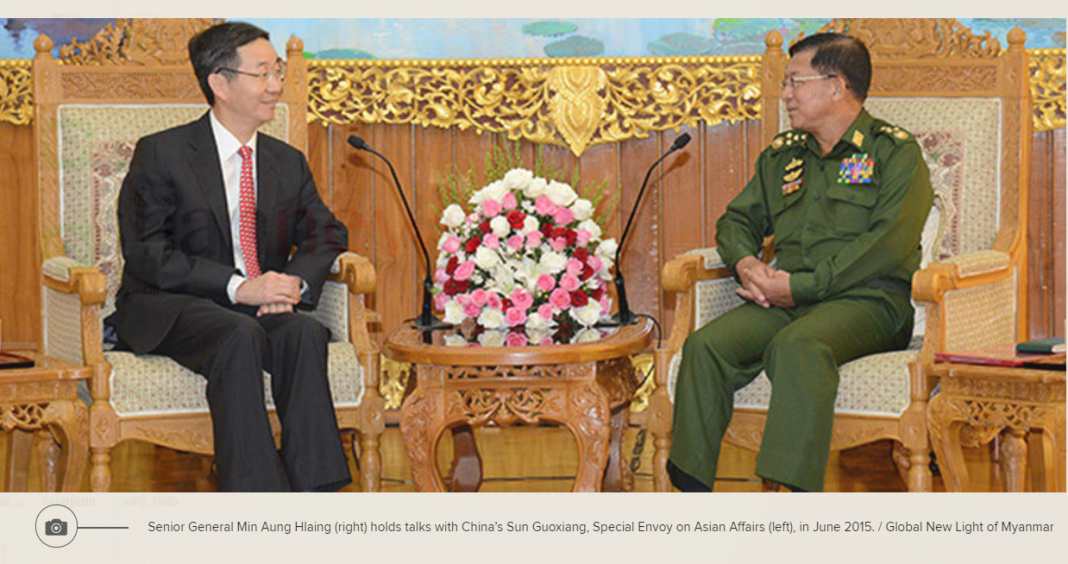
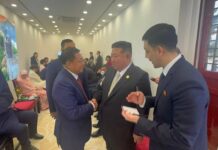
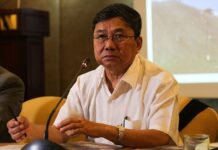
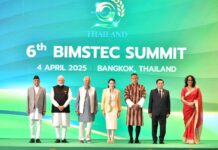
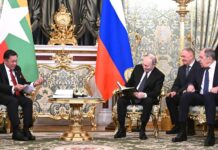
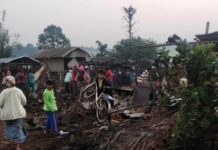




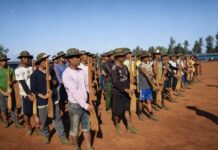

Leave a Comments